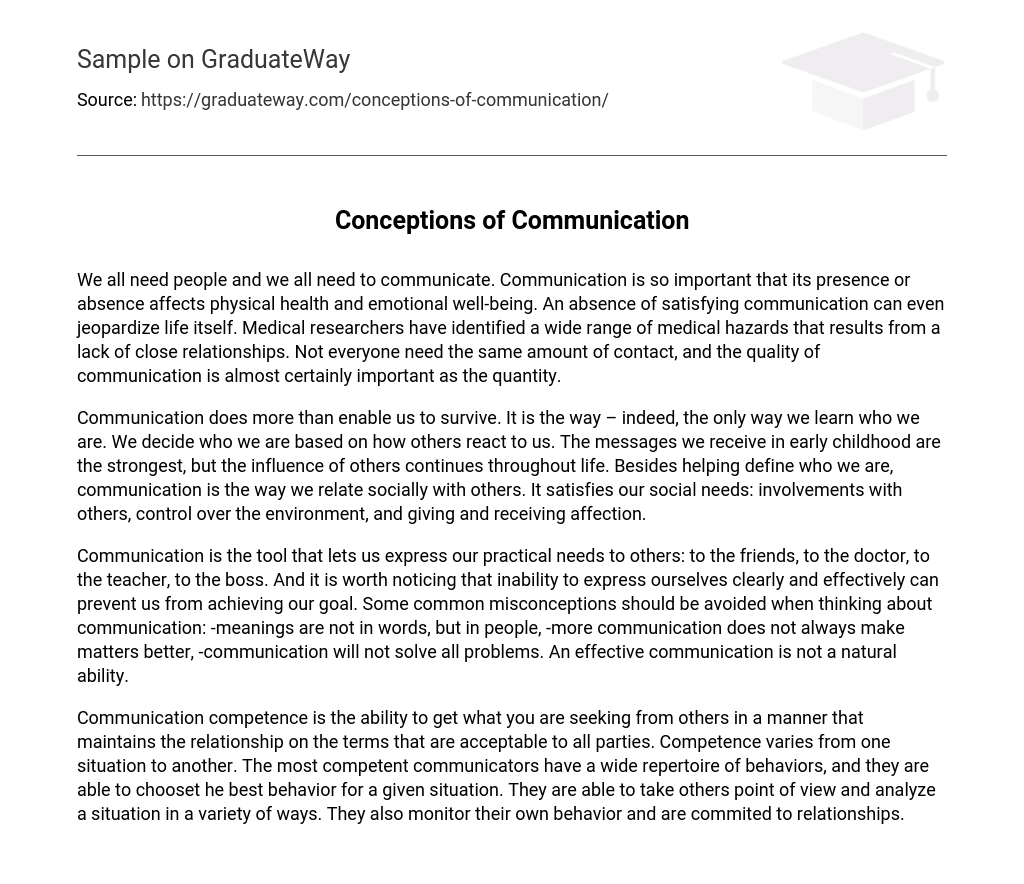We all need people and we all need to communicate. Communication is so important that its presence or absence affects physical health and emotional well-being. An absence of satisfying communication can even jeopardize life itself. Medical researchers have identified a wide range of medical hazards that results from a lack of close relationships. Not everyone need the same amount of contact, and the quality of communication is almost certainly important as the quantity.
Communication does more than enable us to survive. It is the way – indeed, the only way we learn who we are. We decide who we are based on how others react to us. The messages we receive in early childhood are the strongest, but the influence of others continues throughout life. Besides helping define who we are, communication is the way we relate socially with others. It satisfies our social needs: involvements with others, control over the environment, and giving and receiving affection.
Communication is the tool that lets us express our practical needs to others: to the friends, to the doctor, to the teacher, to the boss. And it is worth noticing that inability to express ourselves clearly and effectively can prevent us from achieving our goal. Some common misconceptions should be avoided when thinking about communication: -meanings are not in words, but in people, -more communication does not always make matters better, -communication will not solve all problems. An effective communication is not a natural ability.
Communication competence is the ability to get what you are seeking from others in a manner that maintains the relationship on the terms that are acceptable to all parties. Competence varies from one situation to another. The most competent communicators have a wide repertoire of behaviors, and they are able to chooset he best behavior for a given situation. They are able to take others point of view and analyze a situation in a variety of ways. They also monitor their own behavior and are commited to relationships.





